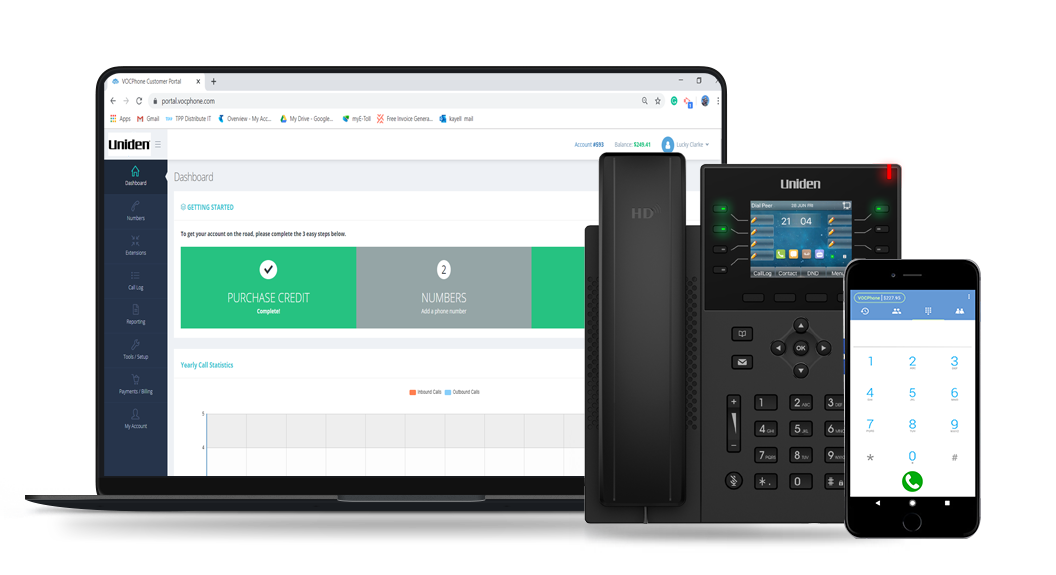
Unravelling the truth: Business VoIP phone plans
Find out how cloud-based phone systems are transforming business communications and why you shouldn’t believe everything you hear.

Find out how cloud-based phone systems are transforming business communications and why you shouldn’t believe everything you hear.
As technology advances, many organisations are turning to cloud-based phone systems to streamline their operations and improve connectivity. Even though many businesses trust cloud-based phones with 63% of startups around the world using VoIP phones and 24% planning to switch to VoIP, misconceptions about business VoIP phone plans persist, potentially holding companies back from embracing this transformative technology.
These misconceptions often stem from outdated information or a lack of understanding about how modern VoIP systems work. By dispelling these myths, businesses can make informed decisions about their communication needs and potentially unlock significant benefits.
Let’s explore common misconceptions surrounding business VoIP phone plans, shed light on the realities of cloud-based communication systems, and help you understand why more and more companies are making the switch to VoIP technology.

Contrary to this belief, modern VoIP technology often provides superior call quality compared to traditional landlines. With advancements in internet speeds and codec technology, VoIP calls can deliver crystal-clear audio. The key factors affecting call quality are internet connection stability and bandwidth. When properly configured, VoIP systems can offer HD voice quality, surpassing the audio fidelity of conventional phone lines.
This misconception stems from early VoIP systems that didn’t have robust security measures. Today, reputable VoIP phone providers implement strong encryption protocols, leading 94% of organisations to reveal they experience better security. Many providers also offer features like multi-factor authentication and regular security updates. When implemented correctly, VoIP can be just as secure, if not more so, than traditional phone systems.
While it’s true that large enterprises were early adopters of VoIP, it has become increasingly accessible to businesses of all sizes. VoIP solutions offer scalable options that can be tailored to suit small and medium-sized businesses. These systems often provide advanced features like call routing and integration with other business tools, allowing smaller companies to compete with larger ones in terms of communication capabilities.
Setting up a VoIP system is often simpler than installing a traditional phone system. Most VoIP solutions are designed for easy deployment, with many offering plug-and-play functionality. Maintenance is typically handled by the service provider, reducing the burden on your IT teams. Software updates and new features are usually rolled out automatically, ensuring the system stays current without manual intervention from the business.
Reduce communication expenses with lower call rates and minimal hardware requirements
Enable remote work and bring-your-own-device policies with mobile and desktop applications
Access cutting-edge tools like auto-attendants, call analytics, and CRM integration
Enhance customer interactions with features like call queuing and intelligent routing
Ensure uninterrupted communication with built-in redundancy and disaster recovery options
Uniden’s cloud-based business phone systems come with a range of advanced features, including HD voice quality and seamless integration with popular business tools. Our solutions are designed for easy setup and management, allowing you to focus on your core business activities while we handle your communication needs.
By choosing Uniden, you’re not just getting a phone system; you’re partnering with a leader in business communication technology. Let us help you navigate the world of VoIP and unlock the full potential of cloud-based communications for your organisation.

Ready to find out how VoIP transforms your communications? Contact us today and discover the perfect cloud-based phone solution for your needs.
Unlike traditional phone systems that use copper wire connections, VoIP converts voice signals into digital data and transmits them over the internet. This allows for more flexible and feature-rich communication options, often at a lower cost than traditional phone lines.
While there are phones specifically designed for VoIP use, many systems allow you to use existing phones with adapters. Plus, softphone applications can turn computers and smartphones into VoIP-enabled devices, giving you flexibility in how you set up your system.
Modern VoIP systems can be just as reliable as traditional phone lines, if not more so. The key factor is the quality and stability of your internet connection. With a good internet service and proper configuration, VoIP can offer excellent call quality and uptime.
Yes, in most cases you can port your existing phone numbers to a VoIP system. This process, known as number porting, allows you to maintain business continuity and avoid the hassle of changing your contact information.
Reputable VoIP providers implement strong security measures, including encryption and authentication protocols. When properly configured, VoIP can be as secure as traditional phone systems. It’s important to choose a provider that prioritises security and follows best practices.